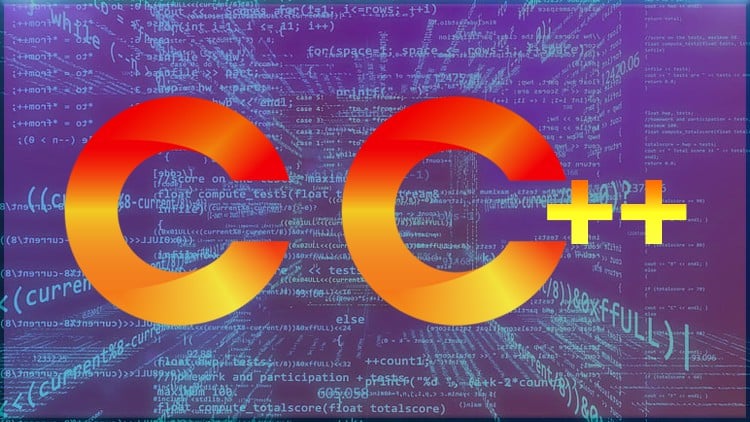
Mastering C & C++ Programming From Fundamentals to Advanced
⏱️ Length: 3.9 total hours
⭐ 4.15/5 rating
👥 31,602 students
🔄 February 2024 update
Add-On Information:
Note➛ Make sure your 𝐔𝐝𝐞𝐦𝐲 cart has only this course you're going to enroll it now, Remove all other courses from the 𝐔𝐝𝐞𝐦𝐲 cart before Enrolling!
- Course Overview
- Embark on an immersive journey to conquer the foundational and intricate aspects of C and C++ programming.
- This comprehensive program is meticulously designed for individuals eager to build robust software solutions, from embedded systems to high-performance applications.
- It seamlessly bridges the gap between introductory concepts and advanced programming paradigms, fostering a deep understanding of memory management, object-oriented principles, and efficient algorithm design.
- The curriculum is structured to provide hands-on experience with practical coding challenges and real-world examples.
- You will develop a strong mental model for how programs execute and interact with system resources.
- Gain insights into the historical evolution and distinct philosophies that differentiate C and C++.
- Explore the power of C’s low-level control and C++’s object-oriented capabilities.
- This course is ideal for aspiring software engineers, game developers, system programmers, and anyone seeking to master the languages that power much of the modern technological landscape.
- The recent update ensures that the content reflects current best practices and language features.
- The 3.9-hour duration offers an efficient and focused learning experience, packed with essential knowledge.
- With a stellar rating of 4.15/5 and over 31,000 students, this course has proven its value and effectiveness.
- Deep Dive into Core Concepts
- Demystify the execution flow of programs through logical control structures.
- Master the art of repetitive tasks using iterative constructs, allowing for elegant automation of complex operations.
- Understand how to gracefully terminate loops or conditional blocks when specific criteria are met, enabling precise program control.
- Learn to combine sequences of characters into meaningful text segments, essential for user interaction and data manipulation.
- Grasp the fundamental object-oriented mechanisms responsible for initializing and cleaning up objects, ensuring proper resource handling.
- Comprehend the different categories of numbers that can be represented and manipulated in code, laying the groundwork for numerical computation.
- Explore the underlying principles of how data is stored and accessed in memory.
- Understand the distinction between procedural and object-oriented programming paradigms.
- Learn about memory allocation and deallocation techniques crucial for efficient program performance.
- Grasp the concept of pointers and their role in direct memory manipulation.
- Advanced Programming Techniques
- Unlock the potential of object-oriented programming (OOP) with classes, inheritance, polymorphism, and encapsulation.
- Delve into advanced data structures like linked lists, stacks, queues, and trees for efficient data organization.
- Explore algorithms for sorting and searching, optimizing program efficiency.
- Understand the nuances of file I/O operations for reading from and writing to files.
- Learn about exception handling to create more robust and fault-tolerant applications.
- Gain proficiency in template programming for writing generic and reusable code.
- Understand the principles of memory management, including dynamic memory allocation and deallocation.
- Explore multithreading and concurrency for developing high-performance, parallel applications.
- Learn about operator overloading and its application in simplifying complex expressions.
- Study the Standard Template Library (STL) for powerful pre-built data structures and algorithms.
- Understand the concept of virtual functions and their role in polymorphism.
- Skills Covered / Tools Used
- Proficiency in C and C++ syntax and semantics.
- Problem-solving and algorithmic thinking.
- Debugging and code analysis.
- Object-oriented design and implementation.
- Memory management techniques.
- Understanding of compiler and linker processes.
- Ability to write efficient and maintainable code.
- Familiarity with standard libraries.
- Experience with common development environments (IDE) and command-line compilers.
- Concept of data abstraction and modular programming.
- Understanding of low-level system interactions.
- Benefits / Outcomes
- Become a confident and capable programmer in both C and C++.
- Build a strong foundation for advanced computer science topics.
- Enhance your employability in various tech roles.
- Develop the ability to contribute to complex software projects.
- Gain the skills to optimize program performance and resource utilization.
- Open doors to opportunities in game development, embedded systems, operating systems, and high-frequency trading.
- Develop a deeper appreciation for software architecture and design patterns.
- Acquire the skills to analyze and understand existing C/C++ codebases.
- Empower yourself to tackle challenging programming problems with effective solutions.
- Earn a valuable certificate upon successful completion to showcase your expertise.
- Requirements / Prerequisites
- Basic computer literacy and familiarity with operating systems.
- No prior programming experience is strictly required, but a logical mindset is beneficial.
- Access to a computer with an internet connection.
- Willingness to learn and practice coding exercises.
- Curiosity about how software is built.
- A desire to understand the building blocks of modern technology.
- PROS
- Comprehensive coverage from fundamental to advanced topics.
- High student satisfaction rating indicates effective teaching.
- Significant number of students suggest strong community support and learning resources.
- Recent update ensures content is modern and relevant.
- Efficient learning duration for the depth of material covered.
- Practical, hands-on approach to learning.
- Builds a solid foundation for a career in software development.
- CONS
- Due to the nature of C and C++, the learning curve can be steep for absolute beginners.
Learning Tracks: English,Development,Programming Languages
Found It Free? Share It Fast!